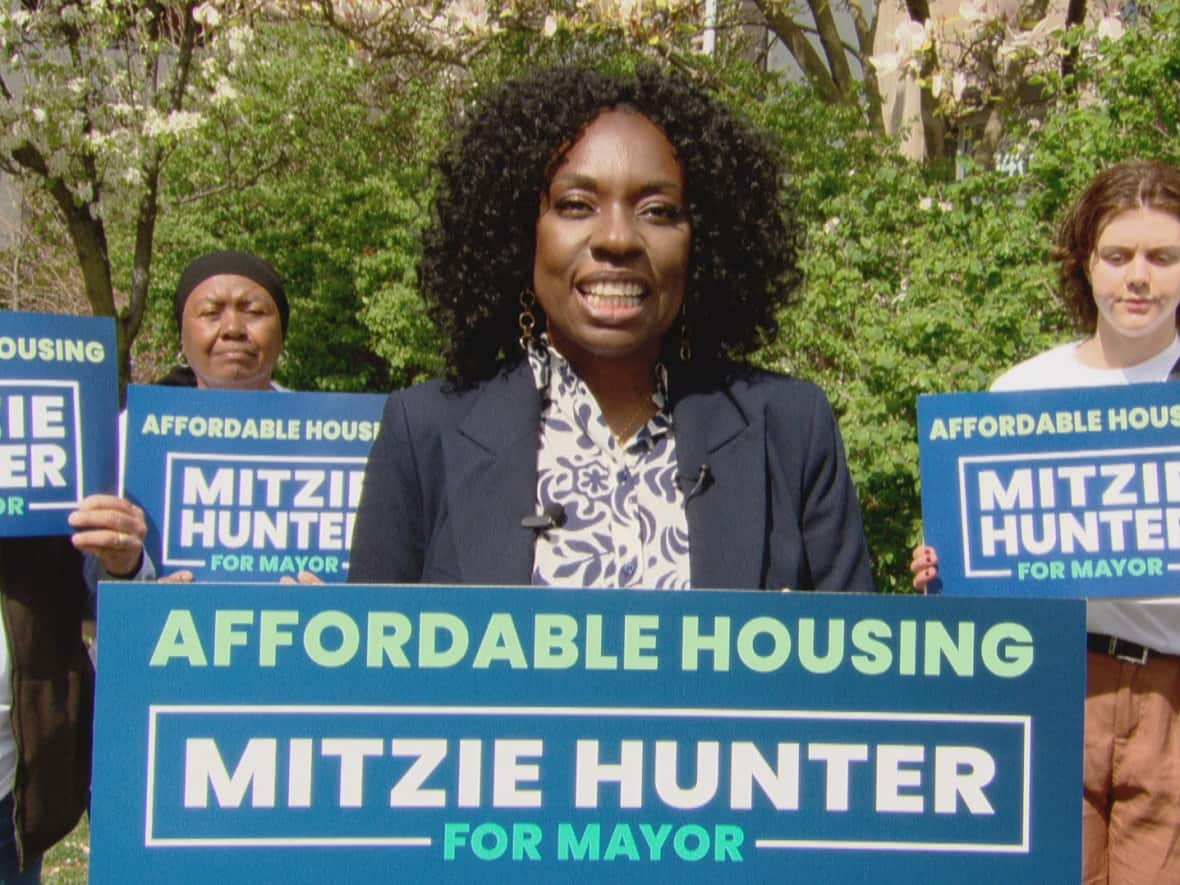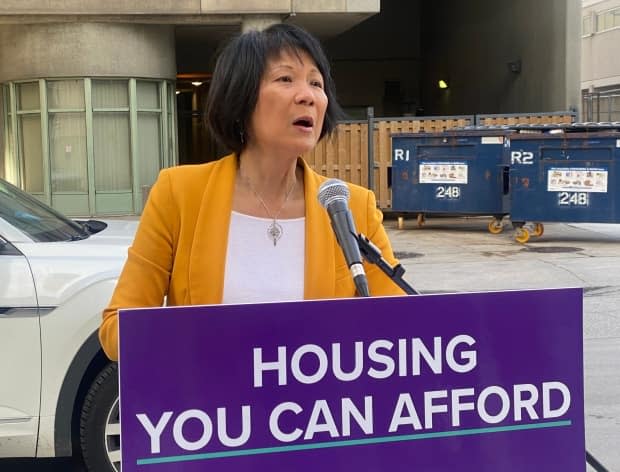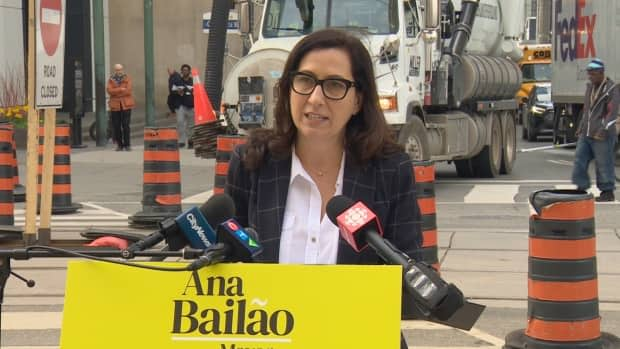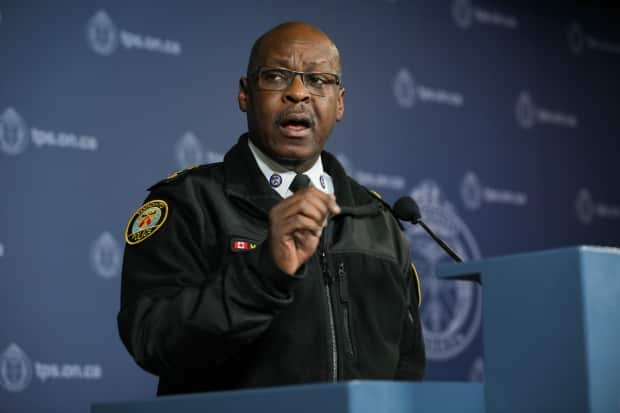Build housing, improve commutes, boost business: What some mayoral candidates promised Monday

Toronto mayoral candidates made a range of promises on Monday that spanned building new affordable housing, improving commutes, insisting that the city have a buy-Toronto policy and limiting weekend road closures.
So far, 76 candidates have registered to run for mayor in the June 26 byelection to replace John Tory. Friday is the last day that candidates can file or withdraw a nomination.
Housing was a major focus on the campaign trail for two candidates.
Mitzie Hunter, currently Liberal MPP for Scarborough-Guildwood, said she would create a Toronto affordable housing corporation that would be responsible for the development of public land to build below market rental apartments and affordable home ownership units. The goal is nearly 22,700 units over six years to provide housing for about 53,650 people.
Hunter unveiled a five-point plan to deliver new affordable housing. If elected, she would:
Unlock public lands for more new affordable housing.
End the multiplex ban.
Add rental apartments on major streets and near campuses.
Speed up building approvals and construction.
Protect renters and save current affordable housing through the creation of a new tenant advocate.
"My first day as mayor, I will issue an proclamation stating that there is no such thing as surplus lands at the city," Hunter said at a news conference.
"We need to make it clear to all that there is no greater priority than leveraging city properties to develop as much affordable housing as possible."
In a news release, she said: "Buying a home in Toronto is now out of reach for all but the wealthiest. Average rent for a one-bedroom apartment is up 22 per cent to $2,500 a month, far beyond the reach of many people.
"The only way out of this mess is to add more affordable housing to meet demand and lower price escalation for renters and buyers alike."
Hunter also said she would ask the Ontario government to bring back rent control.
City should act as a developer: Chow
Olivia Chow, a former NDP MP and former city councillor, said the city would act as a developer under her plan to build 25,000 rent-controlled homes over eight years.
At least 7,500 of the units would be affordable, including at least 2,500 rent-geared-to-income units. All would be built on land that the city already owns, she said.

"It's doable. We've done it before," Chow said at a news conference.
In a news release, Chow said: "You should be able to afford a place to live in our city, but that's harder than ever. Families are forced to spend a huge chunk of their income on rent, and young people are moving out of Toronto entirely because it's too hard to find an apartment they can afford.
"We can't let our city become impossible to live in. Toronto needs to step up and build affordable housing itself."
According to Chow, the city own more than 8,400 properties across 28,000 acres of land and that land includes parking lots and surplus land. Under her plan, CreateTO would be a developer and would partner with the construction sector to build rental buildings that the city would own and that non-profit organizations would operate.
The idea is to create a mix of affordable and market rate homes that will be accessible to families of all income levels, she said.
Prohibit some road closures to ease congestion: Bailão
Meanwhile, Ana Bailão, a former city councillor, promised to prohibit lane closures on Richmond, Adelaide and Dundas streets, between Bay and Victoria streets, until the construction of the Ontario Line transit project is completed. The idea is a "common sense" measure, she said.
"I think we can all agree that commuters in Toronto are frustrated," she said at a news conference. "I'm frustrated too. We're spending hours in traffic that we would rather be spending with our families and our friends and our loved ones. We're not going to bring people back downtown if traffic is stopping them from getting back home."

Bailão said "it's not business as usual" with a section of Queen Street closed to traffic for the next 4.5 years.
She said she would also reduce single TTC fares to $2 on the 501 Queen streetcar until that streetcar is rerouted to Adelaide from Dundas streets, and on replacement buses that will replace the Scarborough RT until a Scarborough rapid bus transit line is completed.
She also said she would extend construction schedules downtown and on the TTC so work can be finished ahead of schedule.
Implement 'buy and hire' Toronto policies: Furey
Anthony Furey, a former Toronto Sun columnist, called for "buy-and-hire Toronto" procurement policies that would favour city businesses and workers. The measures would boost Toronto businesses while helping the local economy continue to recover from the pandemic, he said.
"It's time we started rooting for local manufacturing, we started rooting for local jobs, we started rooting for local businesses," he said.

If elected, Furey said he would encourage the city to enact procurement policies that:
Require municipal projects to favour Toronto suppliers and manufacturers.
Favour Toronto workers and apprentices for all municipal projects.
Sponsor an annual jobs fair to match apprentices with industry and Toronto suppliers with buyers.
"We can look to other jurisdictions that have taken this approach and gained real local economic benefits, all within the rules of existing trade agreements," Furey added in a news release.
Limit weekend road closures: Saunders
Mark Saunders, the city's former police chief, said he would limit weekend road closures and require work on the Gardiner Expressway and Don Valley Parkway to be done at night. He would also limit the number of road closures in the city at any one time.

"Weekend road closures are often disjointed and cause major traffic delays, congestion and gridlock. People want to move and we are not moving," Saunders said in a news release.
"Coming to our city shouldn't be an insufferable experience," he said. "If we don't make it easier for people to get around, they will stop wanting to be here."


